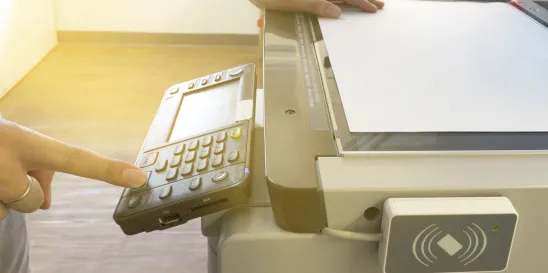According to a putative class action filed in the Northern District of Illinois, computing giant Hewlett-Packard, Inc. (HP) illegally “require[es] consumers to use only HP-branded replacement ink cartridges, rather than purchasing ink replacements from its competitors.” Plaintiffs from Illinois, Missouri, Pennsylvania, Massachusetts, Michigan, New Jersey, New York, Nevada, and Tennessee allege that “HP accomplished this through firmware updates it distributed electronically … which effectively disabled the printer if the user installed a replacement ink cartridge that was not HP-branded.” Plaintiffs further allege that, meanwhile, “HP raised prices on the HP-branded replacement ink cartridges,” which effectively “create[d] a monopoly in the aftermarket for replacement cartridges, permitting it to raise prices without fear of being undercut by competitors.”
Such conduct is commonly referred to as “tying” or “self-preferencing.” In a recent article for the University of Pennsylvania Institute for Law and Economics, antitrust scholar Herbert Hovenkamp identifies two types of self-preferencing that courts have deemed harmful: (1) “when a firm sells one or more brands in addition to its own and gives its own brand favorable treatment;” and (2) “when it tries to steer customers of some primary product to its own brand of a secondary product or its own repair service.” The allegations here are of the latter variety, an attempt to steer customers of its primary product (printers) to its own brand of secondary product (replacement ink cartridges).
This is the latest in a series of high-profile self-preferencing or tying cases brought under antitrust laws. Most recently, the Department of Justice brought suit against Google, claiming that the search engine’s practice of paying billions of dollars to be pre-installed as the default search engine on Apple and Samsung devices was an illegal use of its substantial market power. In a months-long bench trial before Judge Amit Mehta of the U.S. District Court for the District of Columbia, the DOJ presented evidence that, in 2021 alone, Google used $26.3 billion of the profits it acquired from other revenue streams (e.g., advertising) to “be the default search engine in multiple browsers, phones, and platforms.” That trial has concluded, and the case is currently in the post-trial submissions stage. Closing arguments are scheduled for May 1, 2024.
However, the case against HP differs from the case against Google in a crucial respect: HP created the secondary market it allegedly sought to monopolize. In other words, for owners of HP printers, the relevant product market was not ink replacement cartridges broadly, but ink replacement cartridges that would work with HP printers. Moreover, this is not the first time that HP has been accused of anticompetitive conduct. In 2019, HP entered into a $1.5 million class settlement over similar claims involving HP’s monopolization of the ink cartridge replacement market. As part of that settlement, HP was barred from using firmware that allegedly caused HP printers to display error messages when non-HP cartridges were installed.




 />i
/>i

